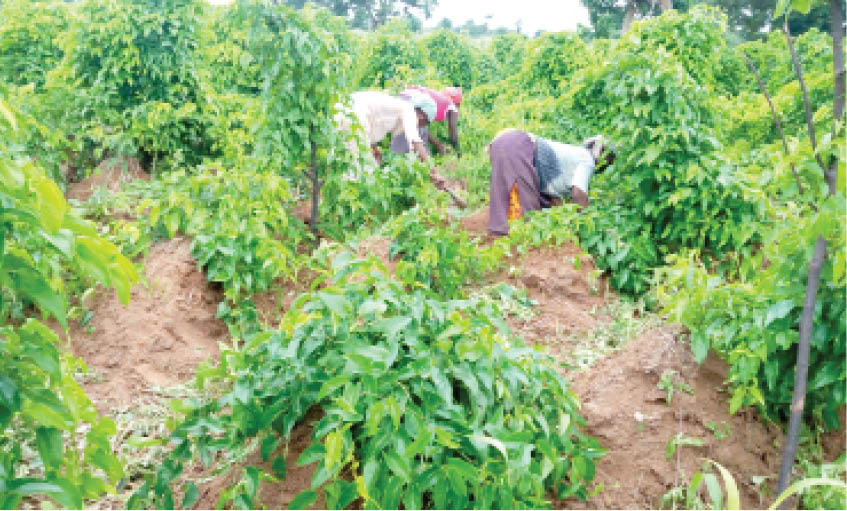Over the years, ‘real’ farmers have complained of not getting access to some of the financial windows by the Central Bank of Nigeria (CBN). But that is gradually changing.
Since the introduction of the Anchor Borrowers’ Programme (ABP) in 2015 by the CBN, many more smallholder farmers have increased access to financial inclusion, although the repayment rate in some places is poor.
- MAN urges CBN on single forex window options
- Feed industry faces further threat as soya beans farmers predict fall in production
On June 18, the CBN said it would integrate non-interest credit access into the ABP, Targeted Credit Facility (TCF) and other agricultural credit facilities to cushion the effect of the COVID-19.
While many stakeholders, especially the farmers, welcome the development by the apex bank, they, however, counseled the bank to completely deal with the ‘real’ farmers through their registered associations or other platforms for authentication.
On religious obstacles, the CBN believes the non-interest loan would address the concern of many Muslims.
“There is no more excuse for farmers, especially Muslims, not to obtain credit facilities and engage themselves in more productive ventures. All youths must be gainfully employed.
“Agriculture is our best option, with a clear focus on job creation, sustainable livelihood, and rural development,” the CBN governor, Godwin Emefiele, said during a review session on the ABP and strategies for the 2020 agricultural wet season
An agricultural economist, Ahmed Bako, said the CBN non-interest loan would be the best thing to happen to the nation’s agriculture if it actually reached the farmers.
He added that what had affected Nigerian agriculture severely over the years was the inability of farmers to access credit facilities to drive expansion and increase productivity.
“Lack of financial inclusion for smallholder farmers has been the major problem over the years. So, if farmers now have access to the planned zero-interest facilities into the ABP, that will be a game-changer for the sector,” he said.
Alhaji Augie Sahabi, who is the Kebbi State Chairman of the Rice Farmers Association of Nigeria (RIFAN), said the removal of interest from the loan would integrate more Muslim farmers who, until now, refrained from taking bank loans with interest due to religious prohibition.
He advised the apex bank to take steps to ensure that only real farmers get access to the fund.
On his part, Uchegbu Chijioke Nicholas, chairman of the Poultry Association of Nigeria (PAN), Imo State chapter and national public relations officer, Catfish and Allied Fish Farmers Association of Nigeria (CAFFAN) said, “This is a welcome development as far as it will target farmers in their areas of comparative advantage.”
He said the fund should be driven by commodity associations, in collaboration with agricultural development programmes of each state, warning that, “Unless we strengthen these associations, no funding will reach the target farmers.”
Prof Lateef Sanni, project manager of the International Institute of Tropical Agriculture (IITA), Basics-II, said, “The gesture is laudable and has the potential of helping over two million farmers between July 2020 and October 2021 in the first instance, and may snowball into helping over five million farmers from 2021 onward.”
Sanni added that the non-interest facility would remove the aspect of five to nine percent of the economics of production from the fund to be loaned to farmers by the CBN.
According to him, if farmers have access to quality seeds, agricultural inputs like herbicide and fertilizer, as well as apply good agricultural practices, there is an assurance that such farmers would get a double yield of cassava, maize, and rice harvests.
“Production cost will also be lowered, thereby earning more income per hectare,” he said.

 Join Daily Trust WhatsApp Community For Quick Access To News and Happenings Around You.
Join Daily Trust WhatsApp Community For Quick Access To News and Happenings Around You.


